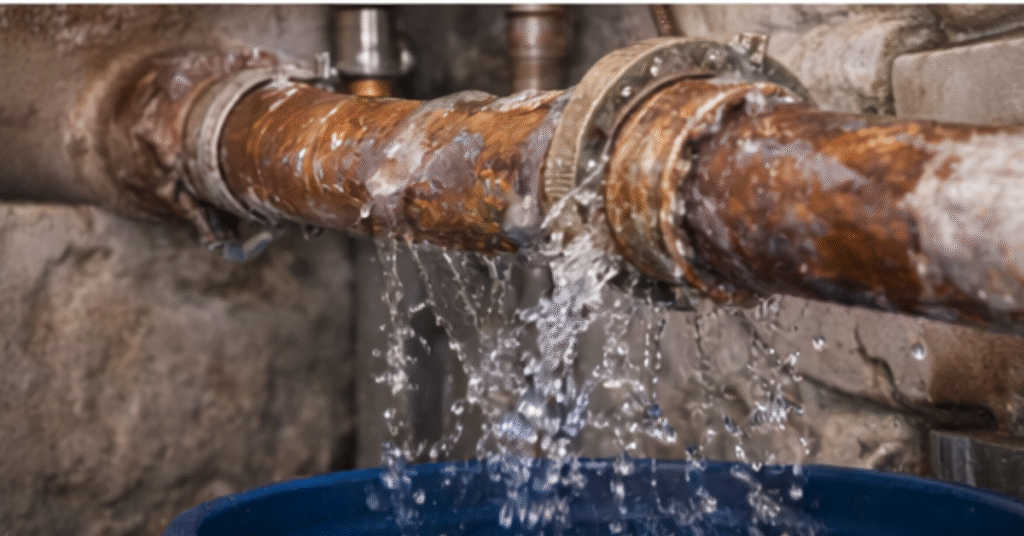
If you live in Edmonds, Washington, you probably assume your tap water is clean and safe. And most of the time, it is—thanks to rigorous water treatment standards set by federal and local agencies. But even treated water can still carry minerals, residual disinfectants, and trace contaminants that affect both your health and plumbing system over time.
In this guide, we’ll break down what’s actually in your Edmonds tap water, what that means for your home and health, and when it might be time to consider water testing or filtration.
👉 Need expert plumbing help in Edmonds? Einstein Pros Edmonds offers trusted water testing, filtration installation, and plumbing services.
💧 Where Does Edmonds Tap Water Come From?
The City of Edmonds receives its drinking water from Seattle Public Utilities (SPU), which sources from the Cedar River and Tolt River watersheds. These protected mountain watersheds are regularly tested and monitored to meet federal safety standards set by the Environmental Protection Agency (EPA) and Washington State Department of Health.
📌 Source: Seattle Public Utilities Water Quality
🧪 What’s Commonly Found in Edmonds Tap Water?
Although the water is treated and generally safe, here’s a breakdown of what may still be present in trace amounts:
1. Chlorine
Used to disinfect water and kill bacteria. It may leave an unpleasant taste or smell in tap water.
- EPA limit: 4.0 mg/L
- Edmonds water average: 0.9–1.1 mg/L
- Health risk: Generally low, but can cause dry skin or respiratory irritation in sensitive individuals.
2. Fluoride
Added to reduce tooth decay, but some homeowners prefer to remove it via filtration.
- Edmonds water average: 0.7 mg/L
- EPA recommended level: 0.7 mg/L
- Health note: Safe in small amounts but controversial among those seeking fluoride-free lifestyles.
3. Hard Water Minerals (Calcium & Magnesium)
Not harmful but can cause scaling in pipes, water heaters, and appliances.
- Edmonds water hardness: Soft to moderately hard (25–50 ppm)
- Effect: Soap scum buildup, dry hair/skin, reduced appliance efficiency
4. Lead (Risk from Pipes, Not Source Water)
While Edmonds’ water system does not contain lead, old plumbing inside homes may leach lead into your drinking water—especially if your home was built before 1986.
🧪 Tip: Request a home water lead test if you’re unsure about your plumbing.
CDC: Lead in Drinking Water
🧫 Are There Contaminants to Be Aware Of?
According to the 2023 Seattle Water Quality Report, no violations of federal health-based drinking water standards were reported. However, trace levels of the following may occasionally be detected:
- Nitrates
- Copper (mainly from plumbing corrosion)
- Haloacetic Acids (HAAs) and Total Trihalomethanes (TTHMs) – byproducts of chlorination
These compounds are typically present at levels well below EPA limits. That said, long-term exposure at elevated levels may increase health risks—especially in vulnerable populations like infants and pregnant women.
🛠️ How Water Quality Affects Your Home Plumbing
Even safe water can damage plumbing systems over time. Here’s how:
| Water Element | Effect on Plumbing |
|---|---|
| Hard water | Mineral buildup in pipes and heaters |
| Chlorine | Can degrade rubber seals in plumbing fixtures |
| Sediment | Clogs aerators and shower heads |
| pH imbalance | Corrodes copper and metal pipes |
Regular plumbing inspections and water filtration can help reduce these impacts.
👉 Einstein Pros in Edmonds offers expert help diagnosing hard water damage, corrosion, and filter system installations to protect your home.
💡 Should You Test or Filter Your Water?
✅ Consider Testing If:
- You live in an older home (pre-1986)
- You notice odd taste, smell, or discoloration
- You have infants, elderly, or immunocompromised family members
- You’re planning to install new appliances
💧 Common Filtration Solutions:
- Activated carbon filters – remove chlorine, odors, and some organics
- Reverse osmosis systems – reduce lead, fluoride, and other dissolved solids
- Water softeners – reduce hard water damage
Not sure what system is right for your Edmonds home? We’re here to help.
🔍 Key Takeaways
- Edmonds tap water meets EPA standards and is generally safe to drink.
- Trace contaminants like chlorine, minerals, and potential pipe-related lead may still pose concerns.
- Hard water can shorten the lifespan of plumbing and appliances.
- Home filtration and periodic testing can improve water taste, safety, and plumbing longevity.
📞 Need Help with Your Edmonds Water Quality?
Protect your home and your health with expert support from Einstein Pros Edmonds. We offer:
- Home water testing
- Filter and softener installation
- Lead pipe inspections
- Plumbing system evaluations
💬 Contact us today for a consultation, and ensure your water—and your home—stay safe, clean, and efficient year-round.
📚 Sources:
- Seattle Public Utilities – Drinking Water
- City of Edmonds – Public Works
- EPA – Tap Water Standards
- CDC – Lead in Drinking Water
- Seattle Water Quality Report 2023 (PDF)
